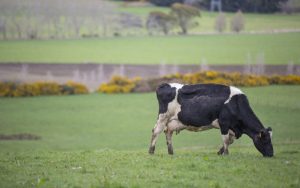
Earlier this year Stats NZ said farm expenses were at the highest level since records began in 1993.
Food prices increased by their largest jump in 14 years in October, up 10.1% year-on-year, Stats NZ data showed. Fruit and vegetables alone were up 17%.
But companies keep making profits despite, their farmer suppliers facing extreme costs and consumers pressed from all sides.
Here’s a look at some of the biggest food exporters and some of the reasons they continue to do so well, despite domestic pressures.
Alliance
Alliance Group Limited, was a 100% farmer-owned co-operative and operated freezing works at eight sites in New Zealand. They exported grass-fed meat and by-products to Europe, North America and Asia.
This week the group announced a record profit before distribution and tax of just over $117 million for the year ending September 30, 2022.
Their profit result was a whopping 186% increase on the previous year, and was based on a record turnover of $2.2 billion.
The co-operative would make an $11.3m profit distribution to its farmer shareholders, and in addition, a $10 million bonus share issue of one share per qualifying stock unit.
Fonterra
Fonterra is a household name and this year they announced a normalised profit after tax of $591 million, up 1% from last year.
They had a total group revenue of $23.4 billion, up 11% from last year.
The company paid a record farm-gate milk price of $9.30 per kilogram of milk solids to their farmers this year. They collected 1.478 billion kilograms of milk solids from farmers.
The company said New Zealand benefited from their profits with $13.7 billion returned into the economy in milk price payments alone this year.
Zespri
Zespri is well known as the biggest local kiwifruit exporter. They also supplied to local markets.
The company announced this year that global net kiwifruit sales increased to just over $4 billion, up 12% from last year.
Their net profit after tax was $361.5 million, up from last year’s $277.1 million.
Zespri sold over 200 million trays of kiwifruit of both New Zealand and non-New Zealand kiwifruit.
Global operating revenue was $4.47 billion, up 15% from last year.
The company and kiwifruit growers had been experiencing fruit quality issues that was expected to continue into next season.
Silver Fern Farms
Silver Fern Farms Limited is a New Zealand multinational meat company.
It was owned in equal partnership by Silver Fern Farms Co-op Ltd, a co-operative of 16,000 New Zealand sheep, cattle and deer farmers, and Shanghai Maling, a food company headquartered in China.
The company was New Zealand’s largest livestock processing and marketing company.
Last year they had a net profit before tax of $51.3 million and a net profit after tax of $103.8m.
The company had about 6000 staff.
Their books also showed a $2.7 billion revenue last year, with $46.7m in dividends paid.
Why do they make profits in this economic environment
Agriculture analysts at Forsyth Barr, Matt Montgomerie and Margaret Bei said there were a number of factors that influenced why some companies had performed well in a falling macroeconomic environment.
New Zealand agriculture as a whole focused on premium products that remained in demand globally, and exports supported these companies, Montgomerie said.
Bei said price increases and the weakness of the New Zealand dollar was a tailwind, but companies had also faced considerable challenges, particularly in labour and cost inflation, over the past year.
Most agriculture food companies sold staple products in finished goods form, like meat, or in the case of Fonterra, raw materials like whole milk powder, that was consumed as ingredients in other products, Montgomerie said.
By nature demand for these products should remain resilient despite the uncertain economic backdrop, Montgomerie said.
Continued strong performance by the agricultural sector should benefit rural communities as many companies hired locally. Broadly speaking, this in turn helps local economies, Bei said.























